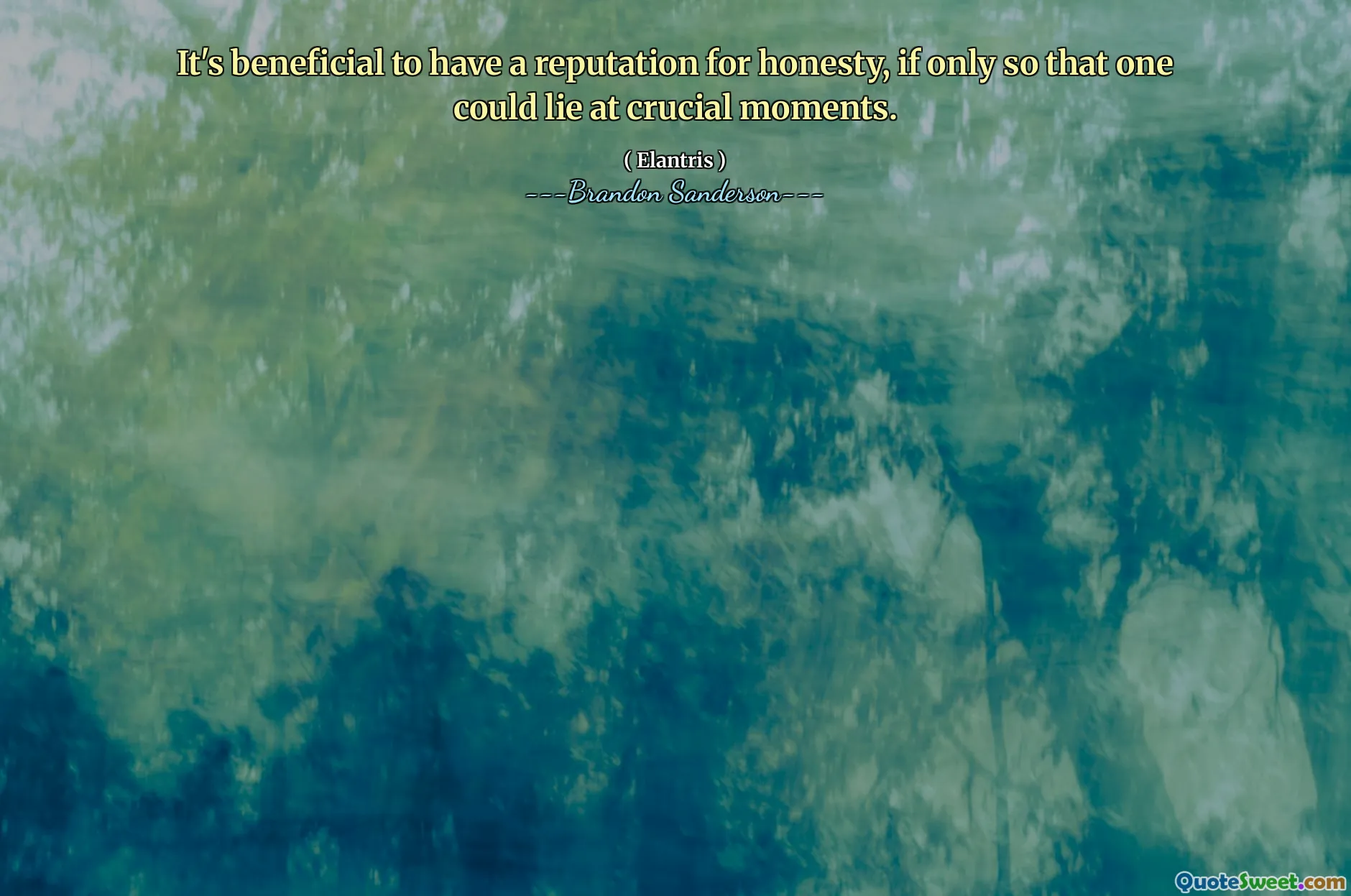
It's beneficial to have a reputation for honesty, if only so that one could lie at crucial moments.
This quote from 'Elantris' by Brandon Sanderson encapsulates a profound and somewhat paradoxical insight into human nature and social dynamics. On the surface, honesty is typically upheld as a virtue, the foundation for trust and integrity in relationships and societies. However, Sanderson's words reveal a strategic dimension to honesty: it can serve as a tool or a form of social currency that grants us leverage in moments of necessity. Establishing a solid reputation for truthfulness creates an expectation, which can then be utilized by telling lies at critical times—in effect, using honesty as a cover to make deceptive actions more believable.
This duality challenges black-and-white notions of morality. It forces us to consider the complexity of ethical behavior, where strict adherence to honesty may not always yield the best outcomes, and strategic deviations can be justified or even necessary. For example, in leadership or negotiation scenarios, withholding or bending the truth might lead to better results or prevent harm, provided it is done with clear purpose and responsibility.
Nevertheless, this approach comes with risks. Cultivating a reputation for honesty with the intent to lie at key junctures can erode trust if discovered and lead to long-term consequences that outweigh the immediate benefits. It raises an enduring question about whether the ends justify the means, and how to balance sincerity with pragmatism. Overall, the quote pushes us to reflect not only on honesty as an abstract ideal but also on its practical function in human interactions and the subtle interplay between truth and deception.






